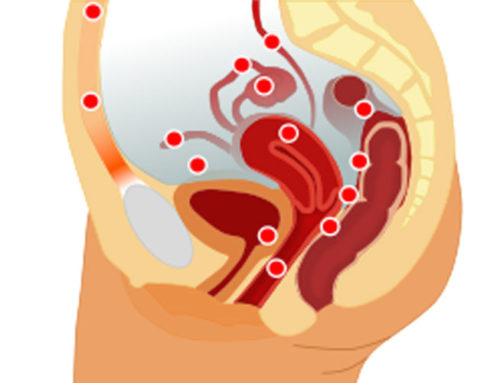How to improve intimacy and sexual function after cancer
 Many men and women struggle with intimate and sexual concerns during diagnosis, treatment, and remission of cancer. This can occur for numerous reasons, including physiological changes that occur with cancer treatment resulting in low libido, loss of erectile function, and pain with intercourse, as well as psychological difficulties such as depression and anxiety which commonly lead to relationship strain.
Many men and women struggle with intimate and sexual concerns during diagnosis, treatment, and remission of cancer. This can occur for numerous reasons, including physiological changes that occur with cancer treatment resulting in low libido, loss of erectile function, and pain with intercourse, as well as psychological difficulties such as depression and anxiety which commonly lead to relationship strain.
If a mastectomy or other body altering surgeries have been necessary, altered body image becomes a challenge to personal sexual identity. It is also common for a man or woman to feel like “I’ve been fighting against my body for so long, I don’t feel inside my own skin anymore.”
Many people will report complete disinterest in sex, such as, “Sex is the last thing on my mind right now,” especially during the initial diagnostic and treatment stages of cancer. Yet even when prognosis and expectations settle, many couples find themselves unable to regain ground in their intimate lives where it was lost in the months or years before.
Furthermore a prostatectomy, hysterectomy, chemotherapy, and hormone blocking medications can all drastically alter hormone levels, resulting in complete disinterest in sex, or inability to acquire an erection or develop vaginal lubrication required for intercourse. Worse yet, many cancer survivors are contraindicated to undergo hormone therapy even after they have combatted their cancer. “I feel nothing from the waist down anymore” is a common struggle.
The emotional experience of loss and grief associated with cancer can be profound for many individuals and their partners, and this psychological toll can strain even the most vibrant relationships. “It’s like I used to love eating and now I can’t taste food anymore” is one way to describe a common experience of sexual life loss. Where intimacy may once have been a comfort and cherished experience, the cancer survivorship experience can leave some couples gasping for air.
If the cancer treatment process is long and arduous, some couples find themselves losing a deep connection between them if focus has remained for an extended term on medical therapies and life logistical management. “It’s been so long since we have really talked, it feels like we have forgotten how” can be a conundrum many men and women find themselves in. Many couples experience struggle in expressing emotions towards one another in the face of cancer. If there were relationship issues that had been creating relationship discord before the trial and tribulations of cancer treatment, that can now seem buried under rubble, and “we don’t even know where to begin” seems like a daunting task.
So what can be done to foster a return to intimacy and sexual fulfillment despite a cancer diagnosis? First, multidisciplinary coordinated team care is often the best approach to address complex medical and psycho social contributions to sexual concerns in cancer survivorship. Complementary therapies approved by oncology such as acupuncture, talk therapy, yoga and relaxation techniques can often improve overall health and wellness. Oncology, holistic providers, primary care, pelvic floor physical therapy, marriage and sex therapists can all support a transformation process.
While hormone therapy is not indicated for some types of cancers in men and women, there are numerous other medical treatment options to restore sexual function, including vaginal moisturizers, lubricants, erectile medication and other treatment options, as well as devices with medical support for their use in people with sexual concerns. Rediscovery of one’s body and self-identity is a process a sex therapist can facilitate — exploring and redefining who you are in your post-cancer body can be a very empowering process. Talking about sex after cancer can be uncomfortable for many couples, even if they have been together for decades. Cancer not only affects body parts, but also alters the way we respond to sexual touch and feelings. Honest exploration about what has changed, and what can next be developed, is an important adaptation in the process of cancer survivorship. Sex and marriage therapy in cancer survivorship can help revitalize a relationship, and set a new course that is intimate and fulfilling.
Consider that our sexuality persists and can even thrive despite being faced with challenges; sexuality is not based on our breasts or genitalia alone, but rather in combination with our hearts, minds, souls and in the deep connections we have in our love relationships. Cancer can have a profound effect on all aspects of quality of life, including physical, psychological, and social dimensions, however, overcoming these obstacles can create a different, new, and vital experience in our relationship with our self and our partner.
























